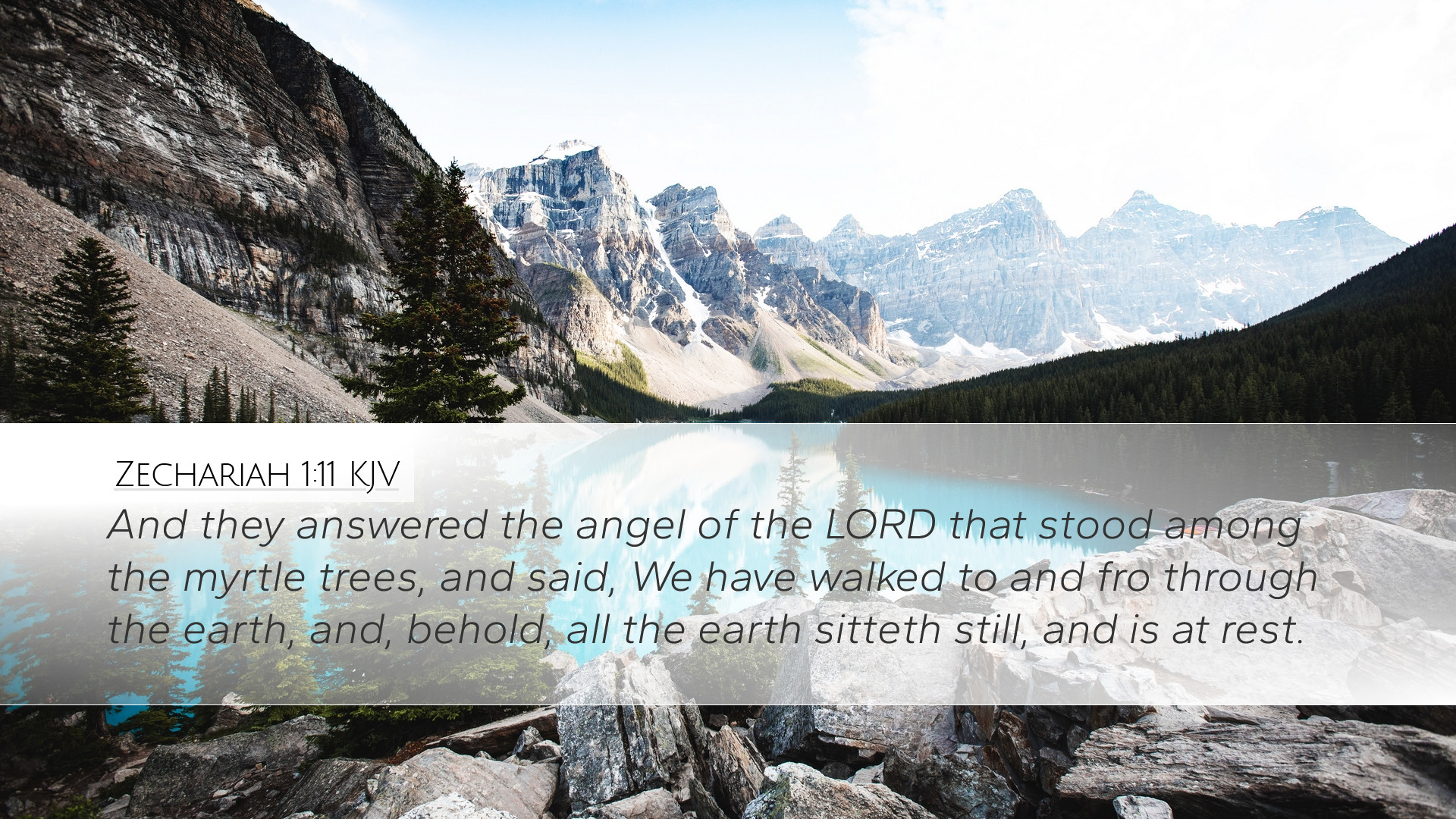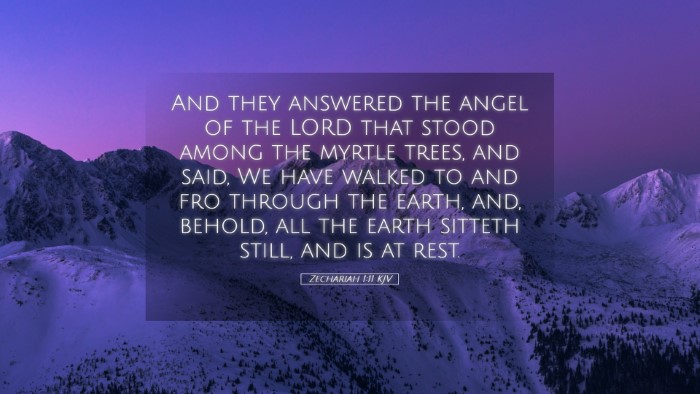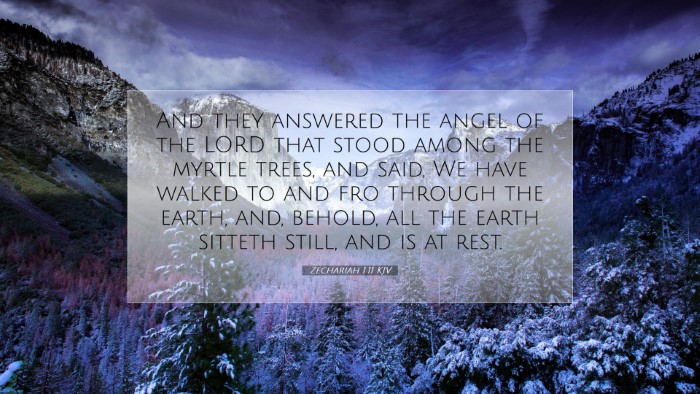Commentary on Zechariah 1:11
Verse: Zechariah 1:11 - "And they answered the angel of the Lord that stood among the myrtle trees, and said, We have walked to and fro through the earth, and behold, all the earth sitteth still, and is at rest."
Introduction
This verse occurs in the context of Zechariah's night visions, which serve to convey God's message to His people during a time of rebuilding and restoration after the Babylonian exile. The phrase "walked to and fro through the earth" is significant, suggesting a thorough inspection of worldly affairs and establishing a divine perspective on the state of nations and the condition of Israel.
Insights From Public Domain Commentaries
Matthew Henry’s Commentary
Matthew Henry highlights the role of the "angel of the Lord" as a divine messenger who stands among the myrtle trees, which symbolize peace and prosperity. This imagery is reflective of God's care and oversight, suggesting that even amidst desolation, there is hope. Henry notes that the "myrtle trees" can represent Israel itself, indicating that God’s people may feel lowly, yet they are cherished by God.
Henry elaborates on the report given by the angels: they observe that the earth is at rest. This is intriguing, as it suggests that while the nations may be at peace outwardly, there is a deeper spiritual unrest concerning the condition of Israel. God, through Zechariah, seeks to bring encouragement to His people, reminding them that God's plans involve restoring His covenant relationship with them.
Albert Barnes’ Commentary
Albert Barnes deepens the understanding by interpreting the "walking to and fro through the earth" as representing the omniscience of God. Barnes informs us that the heavenly beings (angels) fulfill their roles by taking notice of the affairs on Earth as part of God’s supervision. He emphasizes that the state of rest mentioned indicates a temporary peace, one that is disconnected from genuine divine favor.
Barnes explains that the "rest" of the earth is a passive state, a potential precursor to judgment or divine intervention. He points out that although nations may appear serene, it is often a deception, masking the reality of God's displeasure with idolatry and sin. Therefore, the insight is that God's perceived inaction should not be interpreted as indifference but rather as a time allowance for repentance and restoration.
Adam Clarke’s Commentary
Adam Clarke, known for his detailed historical and linguistic analysis, brings context to the reading by noting the geographical and cultural significance of the myrtle tree in ancient Israel. It symbolizes victory and joy, signifying a future restoration and flourishing for those who trust in the Lord. Clarke indicates that the phrase "sitteth still" encapsulates a moment of divine silence before action.
Clarke raises an important point about the nature of God's intervention in history, asserting that the apparent stillness and rest can precede significant divine movements. In his commentary, he stresses that God is not absent but is preparing His people for forthcoming restoration provisions and judgments against oppressors. Clarke's analysis reinforces that God’s timing is sovereign and that faith in His plans is crucial during seemingly quiet times.
Theological Implications
From the insights drawn from these commentaries, several theological implications arise:
- Divine Oversight: The role of God's messengers emphasizes that the Lord is aware of every part of His creation, and nothing escapes His notice.
- False Security: The notion that the earth sits still is a reminder that earthly peace can be misleading. True rest is found in right relationship with God.
- Hope in Restoration: The imagery of the myrtle trees ensures that hope remains alive for God's people, transcending their present predicaments.
- Sovereignty of God: God's timing and methods in dealing with nations and His people suggest that silence does not equate to inactivity; His plans are unfolding behind the scenes.
Encouragement for God’s People
The message from Zechariah 1:11 transcends its historical context and speaks to contemporary believers. Pastors, theologians, and scholars are called to remind congregations that in times of uncertainty and waiting, God is at work. The assurance found in God’s oversight should lead to renewed faith and dedication. The encouragement is clear: God sees, He knows, and He is attentively involved in guiding history towards His divine purpose.
Conclusion
The insights provided by the commentaries of Matthew Henry, Albert Barnes, and Adam Clarke capture the significance of Zechariah 1:11 in a holistic manner. It serves as a reminder of the dual themes of God’s watchfulness over His creation and the importance of recognizing the need for genuine relationship over false security. As we reflect on this verse, let the admonition resonate: God's promise of restoration is coming, and faithfulness amidst trials will reveal the fullness of His glory.


